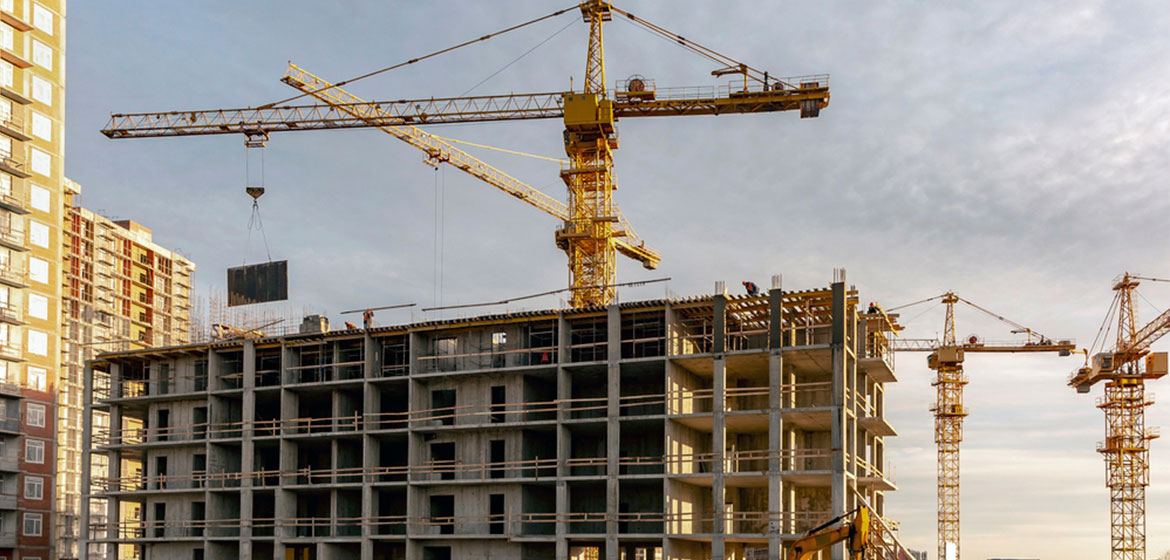Building Codes For Commercial Construction: Learn The Significance

Building codes for commercial construction are comprehensive sets of regulations and standards that govern the design, construction, and maintenance of commercial buildings. These codes are put in place to ensure the safety, functionality, and sustainability of commercial structures. In this post, we will explore the importance of building codes for commercial construction and discuss key aspects related to their significance.
Ensuring Structural Integrity
Building codes for commercial construction focus on ensuring the structural integrity of buildings. They provide guidelines for designing and constructing load-bearing components, such as foundations, beams, columns, and walls. Compliance with these codes ensures that the structural elements are capable of supporting the building’s weight, withstanding environmental loads, and maintaining stability throughout its lifespan.
Enhancing Life Safety
The safety of occupants and visitors is of utmost importance in commercial buildings. Building codes include provisions for fire safety, emergency exits, accessibility, and other life safety measures. They specify requirements for fire-resistant materials, fire alarms, sprinkler systems, and evacuation routes. Adhering to these codes helps mitigate risks and provides a safe environment in the event of emergencies.
Meeting Health and Sanitation Standards
Commercial buildings, such as restaurants, healthcare facilities, and educational institutions, must meet specific health and sanitation standards. Building codes address ventilation, plumbing, electrical systems, and other aspects related to maintaining a clean and healthy environment. Compliance with these codes ensures the well-being of occupants, promotes hygiene, and minimizes the risk of disease transmission.
Energy Efficiency and Sustainability
Modern building codes increasingly emphasize energy efficiency and sustainability in commercial construction. They include provisions for insulation, efficient HVAC systems, lighting controls, and renewable energy integration. By complying with these codes, commercial buildings can reduce energy consumption, lower operating costs, and minimize their environmental impact. Additionally, adhering to sustainability requirements may provide opportunities for tax incentives and certifications like LEED (Leadership in Energy and Environmental Design).
Accessibility and Universal Design
Building codes address accessibility requirements to ensure that commercial buildings are inclusive and accessible to individuals with disabilities. They mandate features such as ramps, accessible entrances, door widths, and wheelchair-accessible facilities. Compliance with these codes allows for equal access, enhances user experience, and promotes inclusivity in commercial spaces.
Fire Prevention and Protection
Fire safety is a critical aspect of building codes for commercial construction. They stipulate measures for fire prevention, early detection, and suppression. Codes specify fire-resistant materials, fire-rated walls, fire alarm systems, sprinkler systems, and fire extinguisher placement. Compliance with these codes helps reduce the risk of fire-related incidents, protects property and assets, and ensures the safety of occupants.
Structural Resilience to Natural Disasters
Building codes incorporate provisions to enhance structural resilience to natural disasters such as earthquakes, hurricanes, and floods. They define design requirements for high-risk areas, specifying reinforcements, anchorage systems, and materials that can withstand extreme forces. Compliance with these codes increases the ability of commercial buildings to withstand natural disasters, safeguarding lives and minimizing property damage.
Compliance and Legal Requirements
Building codes for commercial construction are legal requirements enforced by local jurisdictions. Failure to comply with these codes can result in penalties, fines, delays in project completion, or even legal consequences. Adhering to the codes ensures compliance with applicable laws and regulations, providing peace of mind and avoiding potential legal liabilities.
Quality Assurance and Accountability
Building codes provide a framework for quality assurance and accountability in commercial construction. They establish minimum standards for materials, construction techniques, and inspections. Compliance with these codes ensures that buildings are constructed to meet specified standards, promoting quality workmanship and reducing the likelihood of construction defects.
Building codes for commercial construction are crucial for ensuring the safety, functionality, and sustainability of commercial buildings. They address structural integrity, life safety, health and sanitation standards, energy efficiency, accessibility, fire protection, resilience to natural disasters, and legal compliance. Adhering to these codes not only protects occupants and property but also contributes to the long-term success and viability of commercial structures. Compliance with building codes in commercial construction is an essential responsibility that should never be overlooked.